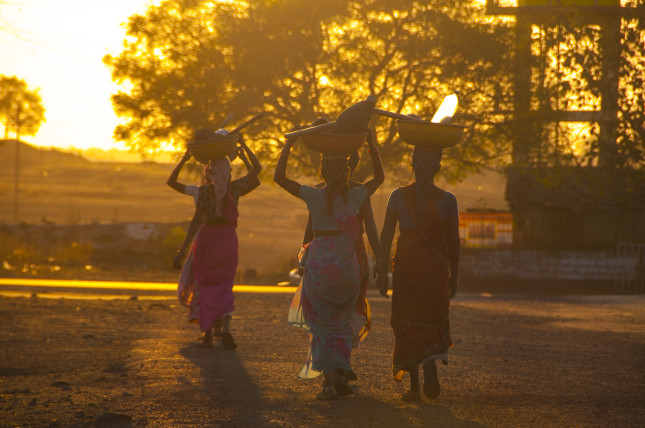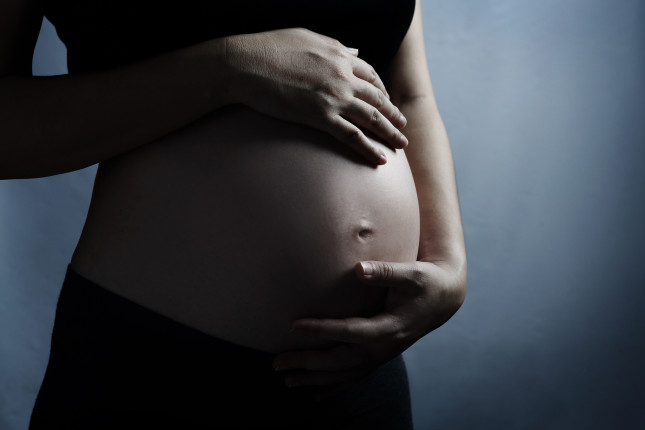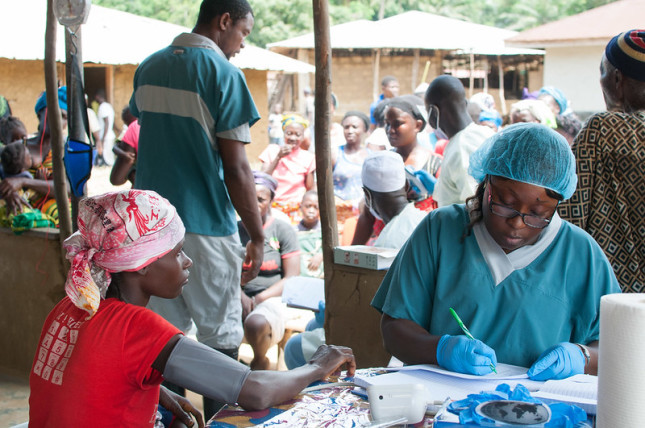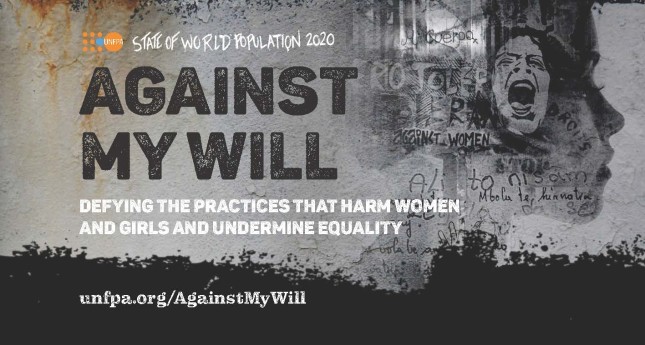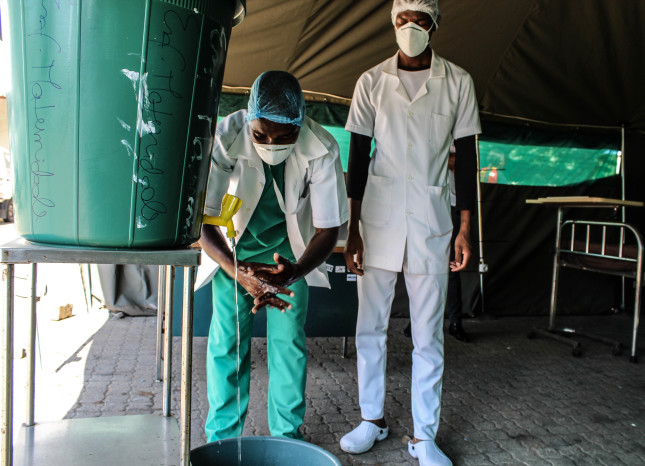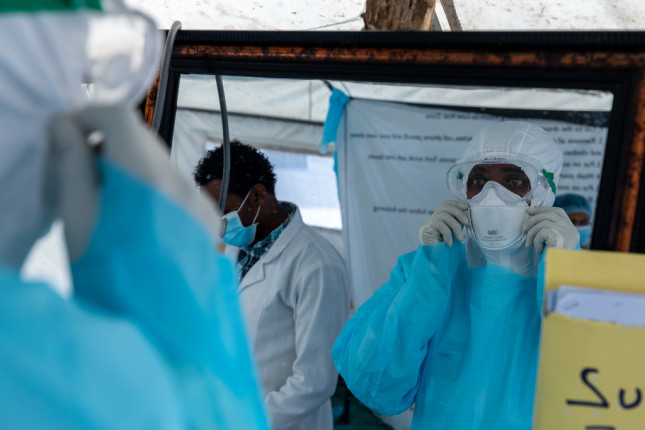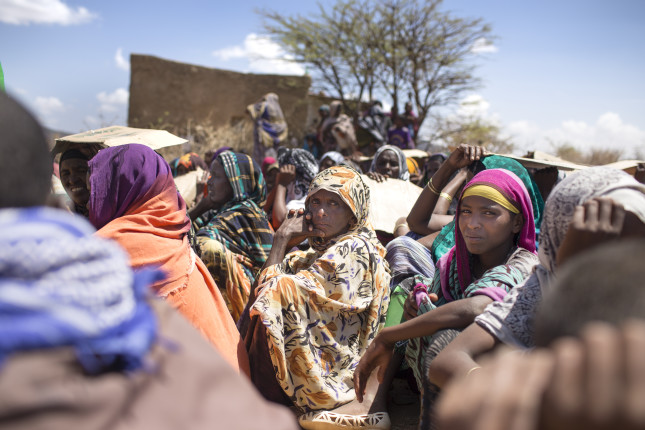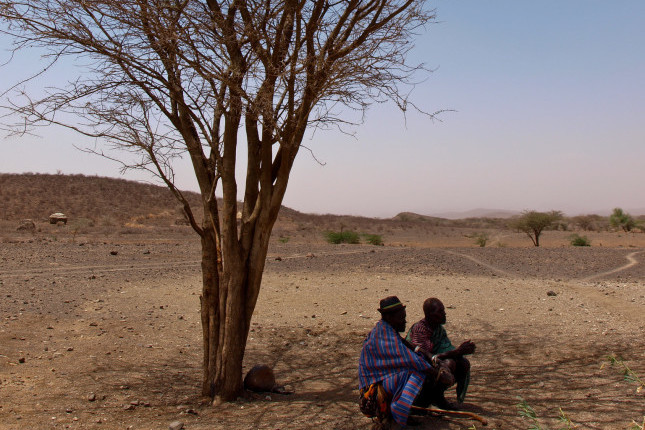-
At the Intersection of Climate Change and Environmental and Reproductive Justice
›“Reproductive justice is the right to reproductive health care, and the right to have children or not, the right to the healthiest possible pregnancy and birth, and the right to raise children in a safe and healthy environment. These rights will be challenged by climate change, including increasing temperatures,” said Linda Goler Blount, President and CEO of the Black Women’s Health Imperative, at a recent webinar on the intersections of environmental and reproductive justice on maternal health, climate change, and birth outcomes. The webinar was held on Juneteenth, the holiday commemorating the end of slavery in the United States, and many panelists’ remarks amplified the significance of the date. “Make this Juneteenth another beginning. One where we commemorate the end of climate injustice for Black and Brown people who bring life into this world,” said Blount.
-
Structural Racism and its Impact on Black Maternal Health
›
“The past months have been profoundly difficult for our nation, and for Black communities in particular,” said Representative Lauren Underwood (D-IL-14) at a recent March of Dimes event on the impact of structural racism on maternal health. COVID-19 has highlighted health outcome inequity caused by race and racism. Though Black people constitute 13 percent of the U.S. population, the CDC estimates they represent over 30 percent of COVID-19 cases.
-
Strengthening Fragile States: Why It Makes Sense to Invest in Global Health
›
Fragile states, where 1.8 billion people live, continue to be where one is most likely to find extreme poverty, violent extremism, and those most vulnerable to natural disasters and pandemics, said Nancy Lindborg, President and CEO of United States Institute of Peace, at a recent Truman Center event on the ties between national security, global health, and development. Those governments that do not have the capacity to meet the needs of their people, she said, also tend to be the ones that cannot manage external shocks.
-
Against My Will: Harmful Practices Threaten Gender Equality Worldwide
›
“Our world is grappling with the COVID-19 pandemic and also coming to terms with systematic racism and oppression that black communities and communities of color continue to experience in the United States and in other parts of the world,” said Sarah Craven, Director of the Washington, D.C. office at the United Nations Population Fund (UNFPA) at a recent webinar launching UNFPA’s 2020 State of the World’s Population Report. This year’s report, titled Against My Will, covers three widespread practices that violate human rights, but are still accepted in many cultures—son preference, child marriage, and female genital mutilation/cutting (FGM/C).
-
The Great Disruptor: COVID-19 Threatens Essential Health Services for Women and Children
›
“The world is at risk of losing millions of women and children due to reductions in coverage of essential services, reversing hard-earned progress towards the SDGs [Sustainable Development Goals] to date and posing catastrophic consequences for households and communities,” said Dr. Koki Agarwal, Project Director of the United States Agency for International Development’s (USAID) MOMENTUM Country and Global Leadership award, at a recent event on the importance of ensuring continuity of maternal, newborn, and child health services, voluntary family planning, and reproductive health care during the COVID-19 pandemic. The event was the first in a series of virtual country knowledge exchange discussions organized by USAID’s MOMENTUM Country and Global Leadership, led by Jhpiego and partners.
-
The Covid-19 Crisis in Africa
›
“African countries are facing a severe health crisis. As of this morning, there are 14,573 confirmed cases of Covid-19 and 790 deaths in 52 out of 54 countries,” said Judd Devermont, director the Center for Strategic and International Studies’ Africa Program, at an April 13th event on the impacts of Covid-19 in Africa. The World Health Organization has estimated a 5 percent drop in Africa’s GDP and the United Nations Economic Commission for Africa (UNECA) believes that as many as 20 million jobs will be lost. There is also a political dimension to this crisis, as governments struggle to deliver services, provide safety and security, and allow people to continue livelihoods, said Judd.
-
Safe from the Start: Addressing Gender-Based Violence in Times of Conflict and Crises
›
“As a leader in providing global humanitarian aid, the United States must be a leader in protecting all aid recipients,” said Congresswoman Chrissy Houlahan (D-PA-6) at a recent event on Capitol Hill about gender-based violence in humanitarian settings. A violation against human rights, gender-based violence (GBV) is deeply rooted in gender inequality. It’s a global phenomenon that involves sexual, physical, and/or psychological violence, including child marriage, female genital mutilation, and other harmful practices.
-
Defying Boundaries: Using Climate Risks to Forge Cross-Border Agreements
›
Climate change is a risk, said Maurice Amollo, a Mercy Corps Chief of Party in Nigeria Mercy Corps. “But it is also an opportunity if people come together.” He spoke at a recent USAID Adaptation Community Meeting, “Tackling the threat multiplier: Addressing the role of climate change in conflict dynamics.” The discussion focused on USAID’s Peace III initiative that Amollo and Mercy Corps implemented in the Karamoja region along the borders of Kenya, Ethiopia, Somalia, and Uganda, where climate and conflict shocks are part of daily life for pastoralist ethnic groups. Addressing climate and conflict issues in these regions will require using the environment to build cooperation and peace, said Eliot Levine, the Director of Mercy Corps’ Environment Technical Support Unit.
Showing posts from category On the Beat.


